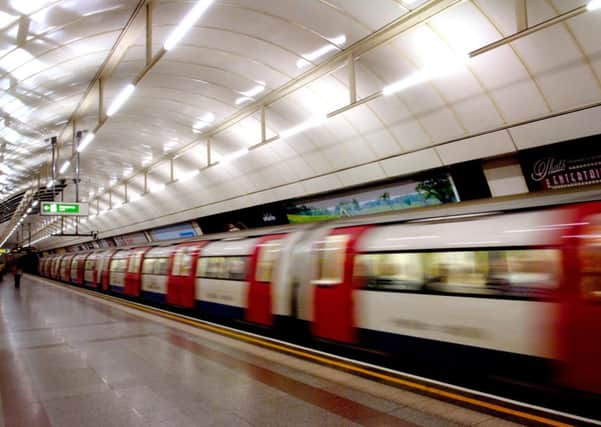‘Tube for North could help grow UK economy’


Senior economists at the City Growth Commission say the UK loses billions of pounds every year “as a result of poor, overly-centralised decision-making that fails to encourage greater connectivity” between cities.
The commission, set up by the Royal Society for the encouragement of Arts, Manufactures and Commerce (RSA), claims a lack of investment in infrastructure has cost the country five per cent growth per annum.
Advertisement
Hide AdAdvertisement
Hide AdIts solution, outlined in its report Connected Cities: The Link to Growth, is to give cities a greater voice in national policy-making and move away from “siloed departmental thinking”.
The report, the third by the commission, said that high speed rail projects such as the HS2 scheme linking London with Birmingham, Leeds and Manchester, was not necessarily the best way to link metropolitan areas.
Last month, Chancellor George Osborne said so-called HS3 high-speed rail link between Manchester and Leeds could help to create a “northern global powerhouse”,
But a statement accompanying the commission’s report said: “Focus needs to be on integrating multiple modes of transport for speed and ease of travel, for example, by building a ‘tube of the north’.
Advertisement
Hide AdAdvertisement
Hide Ad“The Commission noted the importance of HS2 Phase 2 for northern cities, but stressed the greater economic case for connectivity between northern cities.
“So far, attempts to improve East/West connectivity (or even a ‘Phase 3’) are planned for delivery far in the future (or not at all), risking potential gains in productivity, jobs and growth.”
The commission also recommended “drastic changes” to the UK’s planning system, the introduction of a more flexible funding system and better means of measuring the costs and benefits of infrastructure investment.
The City Growth Commission was established in October 2013 to understand how other cities outside London could grow more quickly alongside the capital.
Advertisement
Hide AdAdvertisement
Hide AdChairman, Jim O Neill, a University of Sheffield graduate and former chief economist of Goldman Sachs, said: “We recommend the government considers making two bold decisions regarding its infrastructure policy.
“The first is to provide metros with a strong, powerful voice that can influence and guide decision making at a national level. The second is to place connectivity between metros at the heart of any infrastructure investment, in particular via multiple transport links between cities and better broadband technology.”